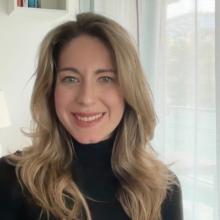


Sustainable web design is an approach to designing digital products and services that are conscious of lowering carbon emissions by becoming more efficient. The internet may be digital, but it runs on electricity, much of which is still produced by fossil fuels.
The choices we make in designing digital Products, from UX and development to the servers we use can have a carbon cost and can contribute to global Greenhouse gases.
Let's talk about the first steps we can take to reduce carbon emissions by making small changes to how we host, design, and develop our digital products.
Interview:
What key takeaways can attendees expect from your InfoQ Dev Summit session?
- The Internet is physical and consumes a lot of energy therefore it is responsible for a fair amount of global carbon emissions.
- How to estimate the carbon footprint of your websites and web applications
- What to do to reduce the carbon footprint of your website and make it overall more sustainable
What's the focus of your work these days?
I am currently working on a few side projects related to digital sustainability. I am co-authoring the Sustainability Chapter of 2024 HTTP Almanac, I am working as a part of W3C Sustainable Web Community group to push forward Sustainable Web Guidelines, and I am co-authoring a book on the topic as well :)
How does your InfoQ Dev Summit Boston session address current challenges or trends in the industry?
I believe that not enough people in the industry are aware of this issue. The Internet consumes a significant amount of energy, and with AI thrown in the mix, most big companies are getting off their road to meet their Sustainability goals. My session is focused on raising awareness, educating participants about this topic, and giving them some actionable items to take to their teams and apply as soon as possible.
How do you see the concepts discussed in your InfoQ Dev Summit Boston session shaping the future of the industry?
As I mentioned in the previous question, a path that looks like the industry is currently taking could be very problematic for our future in general. Everyone who is building and using technology can do it responsibly and most important prerequisite for this is to be aware and educate yourself on all the aspects of the problem. I hope my work contributes positively to this goal.
Speaker

Ines Akrap
Solutions Engineer @Storyblok, Google Women Techmakers Ambassador, Google Developer Expert, Green Software for Practitioners Certified
Ines Akrap is a Frontend Software Engineer passionate about optimizing websites to be fast, sustainable, and provide the best user experience for every user. She works in Storyblok as a Solutions Engineer. She enjoys sharing her knowledge with others through talks, podcasts, workshops, and courses. Her current biggest project is teaching one little human risk management and words.


